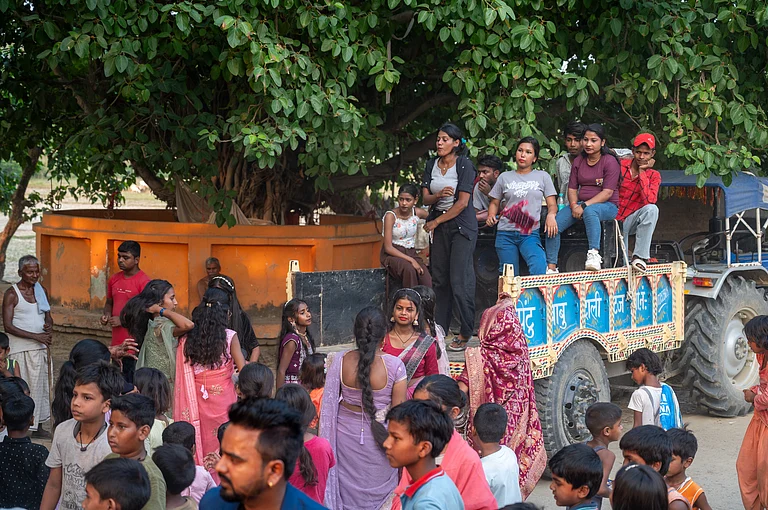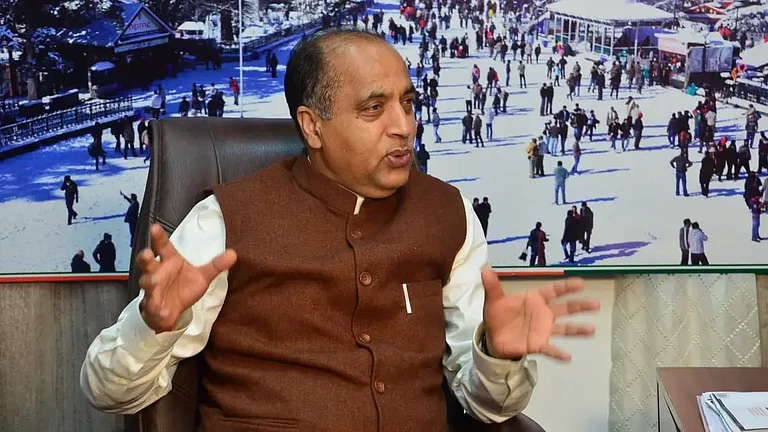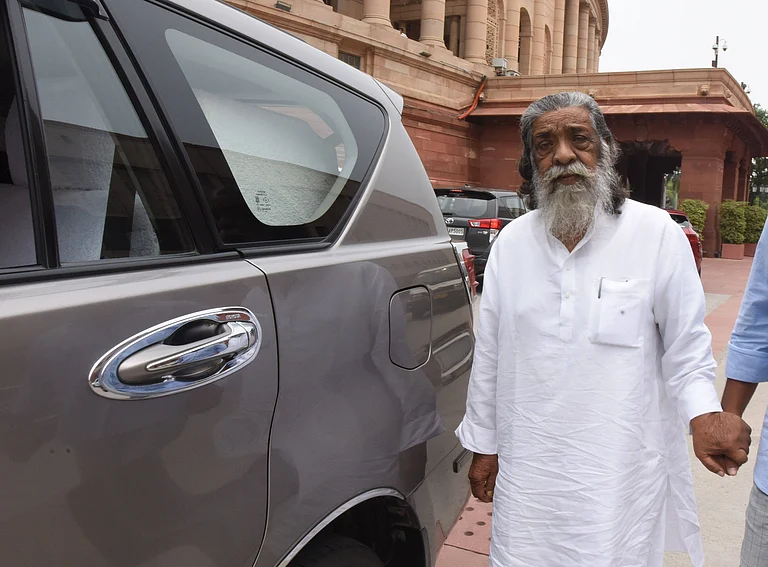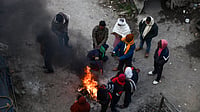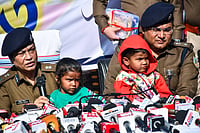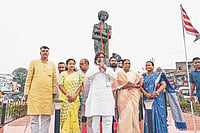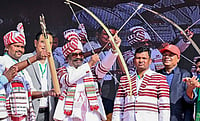Bihar has always been a significant state in the national political arena. Karpoori Thakur, dubbed the Jananayak or People’s Hero, has been a stalwart among the figures hailing from the state, as within his two short terms as the chief minister totalling two and a half years, he took decisions that are considered a landmark for social justice.
Thakur was born in a family of the Nai caste (OBC) on January 24, 1924, in the Pitaunjia village – now rechristened Karpoorigram - of the Samastipur district. He died of heart failure on February 17, 1988, at the age of 64. After first being elected as an MLA in the Bihar assembly in 1952, he never lost an assembly election again. He served twice as the CM of Bihar, apart from one term as the deputy chief minister.
The announcement to award the Bharat Ratna to Thakur was made on Tuesday, on the eve of his 100th birth anniversary, in a press release by the president’s office. This has once again intensified competition among the major political parties of Bihar to claim the stalwart’s legacy.
Political experts believe that the decision is aimed at attracting the OBC and EBC vote-bank in the state. It is important to note that according to the caste census released by the Bihar government on Oct. 2, 2023, OBCs (27.12%) and EBCs (36.01%) account for 63 per cent of the total voters in the state. More than 100 castes are included in the list of EBCs in Bihar, including the Nai-Hajjam (barber) caste to which Karpoori Thakur belonged, constituting less than 2 per cent of the population.
Is the decision likely to affect the outcome of Bihar’s 42 seats in the upcoming general elections? Will it help secure votes among the 63 per cent vote-bank of the Backward Castes? DM Diwakar, the former director of the AN Sinha Institute of Social Studies, Patna, says: “If the BJP thinks the backward castes will now back the party after the honour to Karpoori ji, it is a misconception. Because (RJD Supremo) Lalu Prasad Yadav has been championing the backward castes, and his support among them has been further cemented once he joined hands with (Bihar CM) Nitish Kumar. This (Bharat Ratna announcement) could prove to be a mere failed attempt to secure votes.”
Diwakar believes that the Bihar caste census has resulted in a predicament for the BJP, and led to the party deciding to honour Thakur ahead of the elections. He adds that the party’s opposition to the caste census is no secret, as it even approached the court against the survey in Bihar. Therefore, the Bharat Ratna move may not result in significant vote gains in the state, according to the experts.
The EBCs played an important role in bringing Nitish Kumar to power in the state for the first time in 2015. Subsequently, he has continued to take decisions in favour of these castes. It is the RJD and Nitish who can also claim the credit for launching the caste survey. The RJD and its leader Lalu Prasad Yadav have for long demanded the Bharat Ratna for Karpoori Thakur, and therefore analysts believe that the announcement may not weaken the hold of RJD and JD(U) on the backward castes.
A decision that comes too late
Leaders of the socialist camp have been calling for Thakur to be conferred with India’s highest honour for a long time. They have often blamed the erstwhile Congress governments in the centre – which ruled for decades – for the decision not being taken earlier. They say that as Thakur was a major socialist thinker and the first non-Congress CM of Bihar, the previous governments had no interest in awarding the Bharat Ratna to him. With regard to the BJP, the Bihar leadership has questioned the centre’s motives behind the decision, asking why the centre has suddenly remembered the socialist stalwart after ten years in power, and that too just ahead of the general elections and following the caste census being released.
Diwakar says: “Karpoori Thakur was an honest, true socialist. He was concerned by the social inequality, and popular among all castes and classes. After becoming the Bihar CM, he took some historic decisions. In his second term starting 1977, he implemented the recommendations of the Mungeri Lal Commission, which led to the upper castes turning against him and branding him as a leader of the OBCS. However, he was not just the leader of a few castes, but a popular leader across the society. Thakur was among the few leaders who worked and spoke up earnestly for the most marginalised sections of the society, not just in Bihar but in the entire nation.”
The academic insists that a common element that unites Thakur and Lalu Prasad Yadav is their struggles for social justice. It is noteworthy that Thakur introduced a separate category for the EBCs in reservations during his term as CM, as he represented these communities himself.




